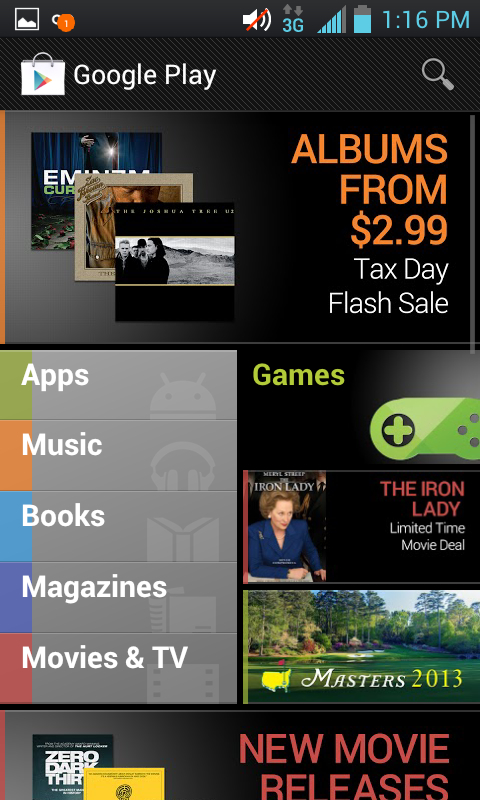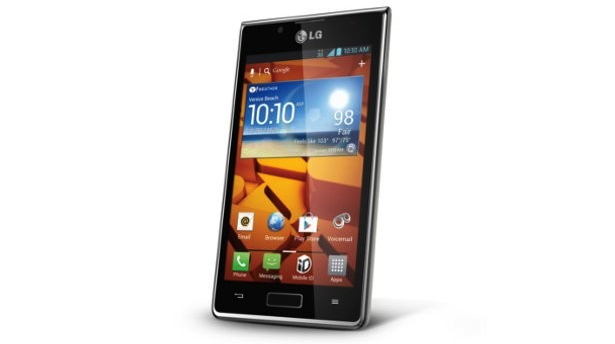Why you can trust TechRadar
Battery Life
The 1700 mAh rechargeable and removable battery found within the LG Venice is rated for up to nine hours of steady usage time, with a standby time of up to 159 hours. Casual users will be able to get through the day with it, but we found that the battery drained just a hair faster than expected. Business or very active app users may find themselves fumbling with the energy saving settings before long.
Storage
Storage is very slim on the LG Venice, at least out of the box. It only comes with 4GB of onboard storage, which after formatting allows less than 2GB of accessible space. Luckily, microSD cards up to 32GB are supported, and the Venice comes with a 2GB card that'll most likely make you want to spring for something much larger.
Apps
Along with the usual array of built-in Android apps – like the excellent Google Maps, which includes turn-by-turn navigation – the LG Venice comes preloaded with a few extras. The carrier-specific BoostZone allows for account management and app recommendations, plus there's Mobile ID, which lets you choose between sets of skins and apps with themes like "Health & Fitness" and "Socially Connected." Luckily, power users can ignore the feature and dodge unnecessary bloatware.

Google Play holds the key to scads of additional apps and games – several hundred thousand, in fact. As noted earlier, however, the LG Venice isn't well equipped to run high-performance apps or most modern games, at least not at the level you'd expect from an Android 4.0 device.
We tried playing online 3D shooter Shadowgun: DeadZone and could almost count the individual frames due to the terrible performance. Temple Run 2 likewise had bits of slowdown and sluggish loading of backdrops. Even 2D games like Angry Birds Star Wars and Super Stickman Golf 2 displayed unexpected performance hits during play. If this is how relatively low-impact games run today, what can you expect a year or more down the line?
